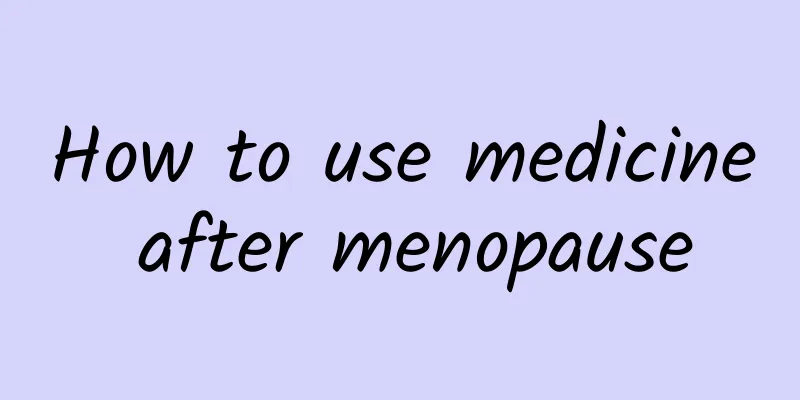How to use medicine after menopause

|
Menopause is a journey that every woman must go through, and it generally occurs on average around the age of 50. Although it is a natural phenomenon, it affects women's daily lives, so we must pay attention to the impact of this phenomenon on women. Does every menopausal woman need to use hormone therapy? Not every woman is suitable for hormone therapy. Doctors will only consider prescribing hormones in the following situations: (1) Discomfort caused by hot flashes and poor temperature control; (2) Psychological symptoms such as mood changes, depression, and insomnia; (3) Postmenopausal symptoms such as senile vaginitis, cystitis, and sexual dysfunction; (4) Symptomatic osteoporosis to prevent fractures; and (5) Prevention of cardiovascular diseases that may occur after menopause. What should I pay attention to when using hormone replacement therapy? The higher the dose of estrogen, the higher the chance of it causing side effects. Therefore, the lowest effective dose is generally used, which is less likely to cause side effects such as nausea, vomiting, headache, edema, weight gain, breast pain, uterine bleeding, etc. On the other hand, it can also avoid over-stimulation of the endometrium and cause endometrial hyperplasia. Progesterone can be taken to prevent this hyperplasia. Long-term use of hormones can also cause hypercalcemia, hyperlipidemia and poor liver function, so special care should be taken when using them. In addition, women with myocardial infarction, stroke, breast cancer, endometrial cancer, thromboembolism, pancreatitis, cholelithiasis or pregnant women should also avoid using this treatment to avoid danger. When should hormone replacement therapy be stopped? There is no fixed timetable for stopping the medication. The doctor will decide based on the patient's condition. Usually, the medication is stopped every six months or a year to see how the patient responds. |
<<: Traditional Chinese Medicine for Menopause
>>: Medical treatments for menopause
Recommend
What are the dietary precautions for adenomyosis?
What are the precautions for adenomyosis? 1. Don’...
The main prevention of ectopic pregnancy in daily life
The phenomenon of ectopic pregnancy continues to ...
Will you turn into a Barbie doll by training with kettlebells? Fitness beauty witch teaches you how to lose 10 kg in half a year
In recent years, when you go to the gym, you can ...
How to differentiate uterine effusion?
Uterine effusion is very common. It is a common d...
Ultrasound diagnosis of congenital absence of vagina
Congenital absence of vagina is the result of bil...
What kind of surgery is needed for uterine fibroids? What should I pay attention to when doing uterine fibroid surgery?
Uterine fibroids are common benign tumors in gyne...
How to treat premature ovarian failure
How to treat premature ovarian failure? Premature...
Menstrual changes are a sign of adnexitis
Becoming a patient with adnexitis means that your...
Guide to Medication for Threatened Abortion
Threatened abortion is a common disease in obstet...
Five common factors can cause irregular menstruation
Those few days of each month are always the days ...
Five main symptoms of cervicitis
There may be more than 5 symptoms of cervicitis, ...
What are the symptoms of habitual miscarriage? You will know after reading this
Women must pay special attention to changes in th...
Does irregular menstruation at 48 need to be regulated?
If irregular menstruation at the age of 48 is not...
Pay attention to vaginitis caused by long-term non-changing of sanitary napkins
MicrosoftInternetExplorer402DocumentNotSpecified7....
Are cervical warts contagious in the early stages?
Nowadays, the relationship between men and women ...









